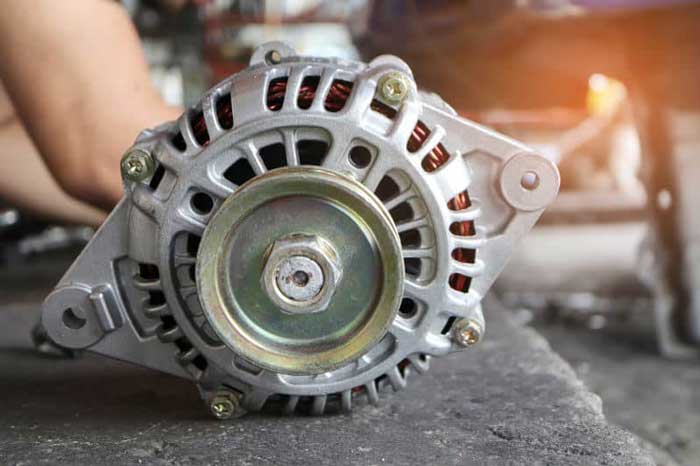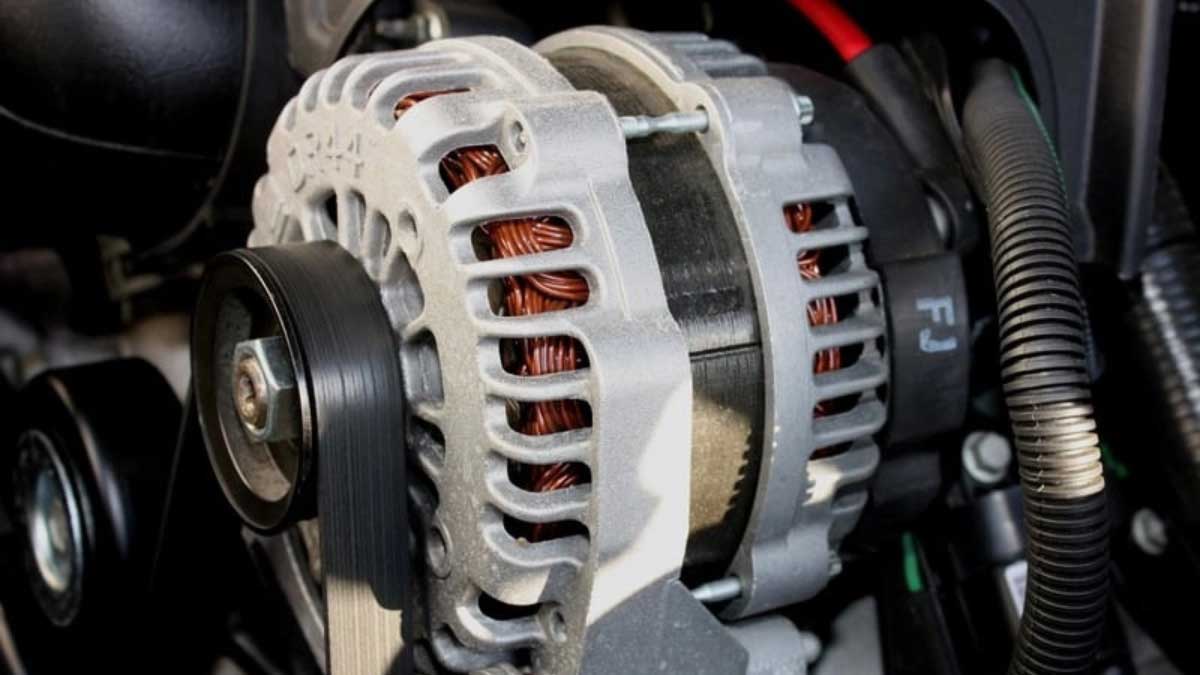So, you’re cruising down the road, enjoying your favorite tunes, when suddenly, your car starts making a noise that sounds like a mix between a squeaky toy and a rock concert gone wrong. Yep, that’s the dreaded alternator bearing noise making its grand entrance into your life. But fear not, fellow drivers, for I’ve got the scoop on everything you need to know about dealing with this pesky little issue.
Understanding Alternator Bearing Noise

Ah, the puzzling world of alternator bearing noise! Let’s immerse and unravel this automotive mystery.
What Is an Alternator?
So, what on Earth is an alternator? Well, it’s that nifty little device in your car that works tirelessly to keep the battery charged and the electrical system running smoothly. Think of it as the unsung hero of your vehicle’s power supply—it doesn’t get the same love as the engine, but it sure does a lot of heavy lifting.
Common Signs of Bearing Failure
Onto the telltale signs of alternator bearing failure. When those bearings start to wear out, they don’t go quietly into the night. Here are some red flags that indicate it might be time to show your alternator some love:
- Squeaking Sounds: If your alternator starts chirping like a bird choir, those bearings could be on their last legs.
- Grinding Noises: Ever heard your car sound like a rock band warming up? That could be the bearings protesting their deteriorating condition.
- Electrical Oddities: From flickering lights to a temperamental radio, these electrical quirks might just be your alternator’s way of crying out for help.
That’s it for now! Stay tuned for more alternator adventures and how to conquer them with a wink and a smile.
Diagnosing Alternator Bearing Issues
Ah, the wonderful world of alternator bearing issues! Time to put on our detective hats and solve the mystery of that pesky noise coming from under the hood. Let’s jump into some clever ways to pinpoint those bearing gremlins!
Inspection Techniques
- Ears to the Ground: No, not literally! Listen carefully for any high-pitched squealing, grinding, or whining noises emanating from the alternator area. It could be the telltale sign of bearing trouble.
- Belly of the Beast: Get up close and personal with your alternator. Check for any play or wobbling in the pulley by gently trying to move it back and forth. Excessive movement may point to bearing issues.
- Visual Clues: Take a good look at the alternator for any signs of wear, corrosion, or leakage. These visual cues can provide valuable insights into the health of your alternator’s bearings.
- Spin Doctor: Time to spin that alternator pulley by hand. A smooth and quiet rotation indicates a healthy bearing, while any roughness or noise spells trouble.
- Road Test: Take your car for a spin, literally! Pay attention to any strange noises or vibrations while driving. These could be indicators of serious bearing issues that need immediate attention.
With these sleuthing techniques in your automotive arsenal, you’ll be able to diagnose alternator bearing problems like a pro! Stay tuned for more tips on how to tackle these issues head-on and keep your vehicle running smoothly.
Effective Solutions for Reducing Bearing Noise
Hey there, now that we’ve uncovered the funky sounds coming from your alternator’s bearing, let me guide you through some nifty solutions to tone down that noise and get your car purring like a kitten again.
Preventive Maintenance Tips
Alright, folks, prevention is better than cure, especially when it comes to your trusty alternator. Let’s jump into some preventive measures that can help keep those bearing noises at bay:
- Regular Inspections: It’s like giving your alternator a check-up – keep an eye out for any signs of wear and tear to catch issues early.
- Proper Lubrication: Just like how we enjoy a little oil on our joints, your alternator bearings need some love too. Ensure they’re well-lubricated to reduce friction and noise.
- Temperature Control: Your alternator works hard, so help it out by keeping it cool. Check for overheating issues that can lead to bearing wear.
Repair and Replacement Options
Ah, the time has come to talk about fixing up your alternator and putting an end to those pesky noises. Here are some repair and replacement avenues you can explore:
- Bearing Replacement: Swap out those worn-out bearings with fresh ones to restore smooth operation.
- Professional Help: Sometimes, it’s best to leave it to the pros. Consider taking your car to a mechanic for a thorough diagnosis and repair.
- Upgrading Alternator: If the bearing noise keeps persisting, upgrading to a higher-quality alternator might be the way to go for a lasting solution.
Conclusion
Well, folks, there you have it! Dealing with alternator bearing noise is like dealing with a noisy neighbor – annoying but manageable. From diagnosing those squeaky sounds to exploring maintenance and replacement options, we’ve covered it all. Remember, when your alternator starts sounding like a squeaky toy on steroids, it’s time to take action. Keep those bearings well-lubricated, give your vehicle some TLC, and if all else fails, don’t hesitate to call in the pros. With these tips in your back pocket, you’ll be cruising down the road in peace, without the unwanted soundtrack of a disrupted rock concert. Stay savvy, stay noise-free, and happy driving!
Frequently Asked Questions
What causes alternator bearing noise?
Alternator bearing noise is typically caused by wear and tear on the bearings due to age or lack of proper lubrication. This can result in a squeaking or grinding sound coming from the alternator.
How can I diagnose alternator bearing issues?
You can diagnose alternator bearing issues by listening for unusual sounds coming from the alternator, checking for any play in the pulley by wiggling it, and conducting a road test to see if the noise changes with acceleration or deceleration.
How can I reduce alternator bearing noise?
To reduce alternator bearing noise, you can perform preventive maintenance like regular inspections, ensure proper lubrication of the bearings, and control the operating temperature of the alternator. These steps can help prolong the life of the bearings and reduce noise levels.
When should I consider replacing alternator bearings?
If you notice persistent or worsening alternator bearing noise despite performing maintenance, it may be time to consider replacing the bearings. Seeking professional help for diagnosis and repair or upgrading to a higher-quality alternator with better bearings can also be viable options.

